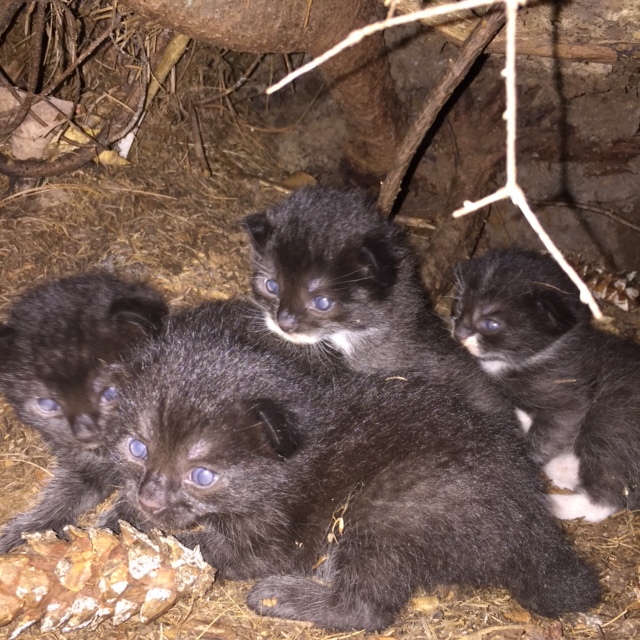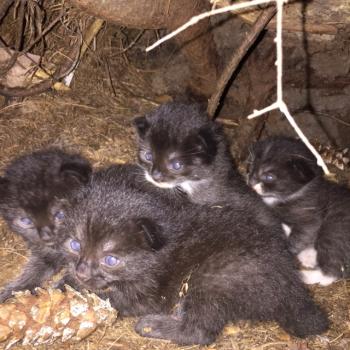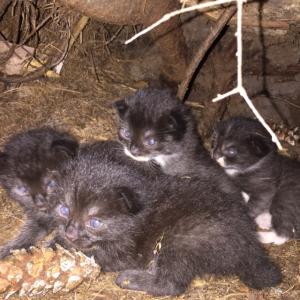This Week in Lincolnville: Our Turn Comes
We knew the day would come. Our turn.,Throughout our nearly 50 years together we’ve both been healthy. The pill boxes we filled every week held mostly vitamins and supplements. Then one day, nearly a year ago, we got a call from Michelle Kinney, our primary care provider or PCP (yes, those silly acronyms roll off my tongue now, like I’ve been in this world of doctoring forever). A recent blood test showed that Wally was anemic. She referred us to a hematologist; I didn’t even know there was such a specialty.
On our first visit to Dr. Betsy Connelly’s office we were both shocked to see what else she was: an oncologist. We knew what that meant. Last winter’s calendar was peppered with appointments — for weekly B-12 shots, for blood tests, for X-rays. But the anemia got worse. In the beginning of March came the bone marrow biopsy that confirmed what we’d been dancing around for months: Wally has multiple myeloma.
It’s a cancer of the bone marrow where the blood cells are born. It’s a blood cancer. That means it can be everywhere. Symptoms include bone pain, unexplained bone fractures, repeated infections, weakness or numbness in the legs, abnormal proteins in the blood or urine, anemia, fatigue.
But here’s what we heard as we absorbed the details of our new normal. Multiple myeloma is treatable; it responds well to a number of drug regimens, many of them new in recent years. It never goes away, but can be pushed into remission. And when it returns (as it apparently will) it can be treated again. People live for years with it, good years, Dr. Connelly told us.
CALENDAR
TUESDAY, Aug. 2Paddle Workshop on Invasives, Pitcher Pond
WEDNESDAY, Aug. 3
Maine Women Authors Discussion, 7 p.m., Library
THURSDAY, Aug. 4
Soup Café, noon- 1 p.m., Community Building
Syrian Relief, 3-9 p.m., CHRHS
FRIDAY, Aug. 5
Midcoast Music Together, 11 a.m., Library
SATURDAY, Aug. 6
Community Crossroads Block Party, 4-6 p.m.,
Breezemere Park
Every week
AA meetings,
Tuesdays & Fridays
at 12:15 p.m.,
Wednesdays & Sundays
at 6 p.m., United Christian Church
Lincolnville Community Library,
open Tuesdays, 4-7, Wednesdays, 2-7, Fridays and Saturdays, 9 a.m.-noon. For information call 763-4343.
Soup Café, every Thursday, noon—1 p.m., Community Building, Sponsored by United Christian Church. Free, though donations to the Community Building are appreciated
Schoolhouse Museum is open M-W-F, 1-4 p.m.; call Connie Parker for a special appointment, 789-5984
Bayshore Baptist Church, Sunday School for all ages, 9:30 a.m., Worship Service at 11 a.m.
Crossroads Community Church, 11 a.m. Worship
United Christian Church, Worship Service 9:30 a.m., Children’s Church during service
COMING UP
Aug. 13: Blueberry Wingding
Okay, we said to each other. We can do this. Even before the results of the biopsy came back we’d started chemo. (Notice the “we”.)
The dreaded chemo. In Wally’s case it was administered twice a week in the oncology clinic at Waldo Hospital — two pills and an injection, not the day-long infusions that we watched other patients endure. We were home in time for lunch.
Then the infections started. Chemo knocks down your immune system; we all know that, right? Multiple myeloma patients are particularly susceptible to pneumonia. Wally’ s had that twice and spent five days in Waldo each time. Then there was the cellulitis that led to a blood clot that ended up in a three-week stay.
Meanwhile, Dr. Connelly had good news. The cancer is in remission. The first three chemo cycles knocked it down to nearly undetectable levels. He’s starting on the maintenance dose, which should be easier on his immune system.
But the bad news, the “leg weakness” mentioned under “symptoms of myeloma” put Wally in a wheelchair. A real game changer. My strong, hard-working husband, the man who can stack three cords of wood in a day, who roams Frohock Mountain in most weathers, sometimes hunting for deer and in other seasons, mushrooms, could barely stand long enough to transfer from chair to car or chair to bed. (“Transfer”, another of those sickroom words I had to learn.)
Because here’s the “I” in the “we” have cancer. There’s the patient, there’s the disease, and there’s the caregiver. We. And by the way, I’m writing this at Wally’s urging.
“Lots of people face the same thing,“ he says.
A husband suddenly in a wheelchair, weak from many days spent in a hospital bed, coming home to an old farmhouse, heated mostly with wood, a huge, sprawling garden, lots of unmown grass. A home business dependent on summer tourists coming through. A contract with the town to pick up Lincolnville Beach every single day, including emptying five big trash barrels. A commitment to write a weekly column for the Pilot. The whole thing is overwhelming.
For several weeks all that we knew about his legs and the knees that buckled unexpectedly, was that it was some sort of neuropathy, nerve damage. No indication if it would ever improve. By the time he came home from the long hospitalization our bed of 46 years had been moved into his den downstairs, amid mounted deer antlers, a gun rack, and memorabilia of his teaching career. All the rag rugs were put away and half the downstairs furniture relegated to the barn loft. In a single day Peter and Zach Thomas built us two ramps, one into the house and one out onto the deck, installed grab bars in the shower, and railings where needed.
The first few weeks of wheelchair living were tense and even terrifying. Every time he stood up to transfer was an event. Remember those “unexpected fractures”? We’d been well-warned at the hospital that he could break a hip. Along with the warnings had come training in occupational therapy (how to take a shower, get dressed) and from the physical therapists how to use a walker, ways to strengthen the legs.
Once home we had three different home health workers: Nurse Cathy to monitor his lungs, heart, blood pressure, and warfarin (remember the blood clot?), Physical Therapist Janeke, and Occupational Therapist Brian. We came to look forward to their frequent visits. We learned a lesson about Waldo County Hospital’s computer system the day I mentioned to one of them that Wally had taken a shower while I was out of the house. Ooops. By the next day every single one of them, including the oncology clinic staff, knew what he’d done and that he’d been chastised for it. We vowed to keep such indiscretions to ourselves!
Bit by tiny bit your life changes when someone in your household becomes seriously ill. Do I have to say that usually the someone is elderly? That disease and disability are way more likely to strike the old? And that often there’s a spouse healthy enough to become the caretaker? I can only imagine the thoughts that swirled through my husband’s mind during the long, sleepless hospital nights, as he came to grips with his inability to walk, what it would mean for his future days, for our lives so dependent on his strength. I only know how it affected me.
First off, in the early days of our journey into the land of doctoring, my blood pressure soared to a scary level; I’d always hovered around 120/70, a reading I was quite proud of; it was a personal affront to now be taking medication. Next, I thought I was having a heart attack one night not long after his first pneumonia, (the one that started with such delirium and high fever that the whole ER staff was on high alert). So then it was my turn to spend most of a night in the ER getting checked out. Probably a panic attack, said family.
That resulted in weekly sessions with a therapist, thanks to one son’s suggestion. When Wally’s knees started buckling in the hospital and they put an alarm on his bed and a yellow Falling Star on his door (no honor, I told him, rather meanly), I was such a mess that another son told me I was manic and proposed I try acupuncture. I did, and still go regularly.
The grocery bag full of prescriptions they handed me at the pharmacy the day he came home in a wheelchair was yet another blow. Managing his many medications would be falling to me, of course. Most recently, after the second round of pneumonia, this one striking in the middle of the night, totally without warning, and which resulted in an ambulance ride so he could have oxygen on the way to Waldo, there was yet another indicator of the road we were traveling: he came home with oxygen. We came home with oxygen. Heavy tanks with confusing instructions, further restricting his — our — movements, unsure of what was safe to do, how long a tank would last, would this be forever?
My mood fluctuates. Most of the time I’m encouraging and kind; I really do love taking care of him, making him comfortable in little ways. Other times my inner Nurse Cratchett takes hold and I remind him that he’s helpless without me. Nights are worst. He’s often restless and fidgety, can’t get comfortable, can’t sleep. So neither can I. Sleep in another bed suggest my new best friends, the therapist and the acupuncturist. Not so easy after all these years. We’d both be miserable.
So what’s it like dealing with a serious disease — with cancer — in a small town hours away from large medical facilities? The downside is the distance, of course. Radiation treatments are often done in Augusta; 30 or more daily trips for a few seconds of radiation are not unusual. Many patients travel to Portland or to Boston for specialized treatments.
“Are you getting a second opinion?” friends ask. “You ought to go to Boston,” they say. Each of us has to decide what’s best for us; I imagine that’s true no matter where you live.
So what else is it like dealing with illness in a small town? Everyone notices. They spot the new ramp out the front door the day it goes up. They know the ambulance went to our house. They notice I’m emptying the trash barrels alone every morning. There’s no missing the familiar figure that’s come in a wheelchair to a school assembly. And they start asking how they can help.
They bring food by — dinners, a pie, a box of homemade cookies on the doorstep the night of the birthday I spent in his hospital room. They visit him, send cards, bring soup. One day a couple drove up, jumped out of their car and said “What can we do?” By that time I knew enough to say, “How about weed whacking?” An hour later the whole place was transformed.
A friend offered to do Reiki for me. Another first!
Bags of dried medicinal mushrooms, foraged by a friend, were left on our doorstep with detailed instructions on how to prepare them.
Several people have spontaneously come by to weed, and we work companionably on either side of a planting bed, pulling weeds and talking.
I’ve learned that there’s always someone who’s got it much worse than we have. But that doesn’t diminish the struggles we’re dealing with. Today things are looking up for us. The dreaded oxygen tanks sit unused in a corner, as within a few days of coming home two weeks ago, he no longer needed it. He uses a walker now, and has even taken a few, very few, tentative steps without it. Now that the myeloma is in remission the neuropathy it caused should improve, though nerves regenerate very slowly, maybe as long as two years.
But in the meantime, we’re thankfully still ourselves. We laugh a lot, snap at each other occasionally, but are quicker to apologize. He’s up at 4 a.m. with me, just as we’ve always done, then out to get the paper, walking slowly, slowly over the gravel driveway. I hear him coming from the next room — shuffle shuffle; no more sneaking up on me these days. And if you happen to be up at dawn watch for the old guy pushing what appears to be a grocery cart piled high with overflowing trash bags. That would be Wally.
Library News
Come join a discussion of well-known Maine writer Louise Dickinson Rich, this Wednesday, August 3, 7 p.m., at the Library, part of a series on Maine women authors being held this summer at five Waldo County libraries and the Penobscot Marine Museum. The discussion in Lincolnville will focus on three books: “We Took to the Woods,” Rich's bestselling memoir published in 1942 about the years she and her husband spent living in a remote cabin in western Maine; “The Coast of Maine,” an engaging history and visitors guide; and “Start of the Trail: the Story of a Young Maine Guide,” one of several books Rich wrote for young adults.
On Friday, August 5 at 11 a.m. Jessica Day will present Midcoast Music Together for families and their children, newborn to age 5. Come sing, dance and have fun exploring musical instruments together. This summer series is sponsored by the Ethel and W. George Kennedy Family Foundation and is free.
For more information, call 763-4343 or email.
Another Container for Syria
Even after making use of just about every square inch of space on the last container which was shipped to Syria, there was still “way more leftover, including six hospital beds, breathing machines, exam tables, and so much more.” Strong people are needed to move everything outside of the CHRHS band room before the container arrives and then get it on quickly once it's there,Thursday, August 4, 3-9 p.m.
Crossroads Community Block Party
The 10th annual free Block Party at Breezemere Park, sponsored by Crossroads Community Baptist Church, will be this Saturday, August 6, 4-6 p.m. and includes barbecue, a puppet show, two bounce houses, games, cotton candy, popcorn, sno-cones and more. For more information contact Miss Marian at 763-3551.
Blueberry Wingding
It’s almost time for the Lincolnville Improvement Association’s annual Blueberry Wingding at McLaughlin’s Restaurant, Lincolnville Beach. A delicious blueberry pancake breakfast, eaten right on the shore of Penobscot Bay is the perfect start to a summer day. The date is Saturday August 13, 7:00-10:30; great raffle prizes too!
Then and Now
Beedy Parker is well-known to many in our area as a passionate environmentalist and lover of the natural world. Back in 1984 she wrote and illustrated A Natural History of Camden and Rockport, a wonderful compilation of all aspects of our whole midcoast area. Now Beedy is writing a 2016 Update to her 1984 book, a short appendix on how things have changed. She’s asking people to let her know “ordinary observations species-wise (and weather), in our area, in the last 30 years (or more recently), in the various habitats around us (forest, roadside, shoreline, off-shore, freshwater…), things you have noticed here and there.”
I just sent her my off-the-cuff list:
Gone:
the mussel beds at Ducktrap
moose (seen only very rarely in L’ville these days)
a beautiful stand of lady slippers off Slab City Road, bulldozed for a development
toads — haven’t seen one in years
barn spiders, the Charlotte’s Web kind, huge and lovely
rabbits
evening grosbeaks
flounder
sand dollars (maybe because we don’t walk out so far at low tide!)
Arrived:
land snails in the garden
ticks
daddylongleg or vibrating spiders in the house, webs everywhere
cardinals
turkey vultures
occasional snowy owls
bishopsweed —goutweed — everywhere - roadsides, perennial beds, wherever the mower doesn’t reach
japanese beetles
fishers
coyotes
eagles
bluebirds
titmice
So what are we seeing down on the shore these days, an egret or a white heron?
I called it a snowy egret last week, but great white egret is apparently what we saw at the Beach flying around the Lobster Pound sea wall towards Ducktrap. Kathleen Oliver reported a great egret was in their pond on Ducktrap Road the other day. Then today we saw it at Ducktrap, fishing in the mudflats at low tide. According to Wikipedia it sounds like this is one and the same bird, although there was some suggestion that the white heron was a rare color phase of the great blue heron. Can anyone with more bird knowledge than I clear this up?
Since Maine women authors are the Library’s focus this summer, look for Sarah Orne Jewett’s story “The White Heron”…. Egret or heron, it doesn’t really matter.
Event Date
Address
United States

























